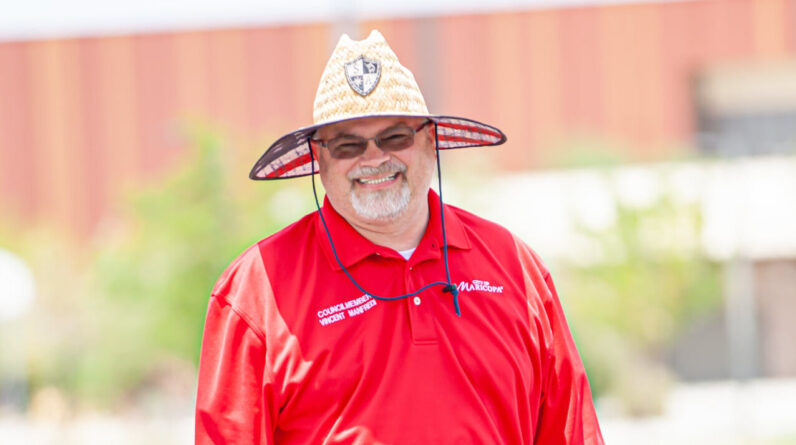Plurinational State Foundation Day is a national holiday celebrated on January 22 each year in Bolivia to commemorate the formation of the Plurinational State of Bolivia. This day marks the adoption of a new constitution in 2009 that established Bolivia as a plurinational state, recognizing the rights and autonomy of various indigenous groups in the country.
It is a time for Bolivians to reflect on and celebrate the cultural diversity and heritage of their nation. The holiday is marked with various festivities, including parades, traditional music and dance performances, and cultural exhibitions. It is a significant day for the Bolivian people as they honor the principles of unity, equality, and respect for all ethnicities and cultures that make up their society.
Why Plurinational State Foundation Day Is Important
- The Plurinational State Foundation Day is an event of great importance as it celebrates the establishment of the plurinational state of a nation.
- It marks the nation’s commitment to embracing diversity and inclusivity by recognizing the rights and identities of various ethnic and cultural groups within its borders.
- This day serves as a reminder of the struggles and sacrifices made by the founding leaders and citizens who fought for the recognition and inclusion of all groups of society.
- It is a symbol of unity, showcasing the nation’s commitment to building a harmonious and inclusive society where every individual is valued and respected.
- The Plurinational State Foundation Day promotes and celebrates the principle of unity in diversity.
- It recognizes and acknowledges the importance of different ethnic, cultural, and linguistic backgrounds that contribute to the richness of the nation.
- By embracing diversity, the nation fosters understanding, tolerance, and respect among its citizens.
- Furthermore, it provides an opportunity to celebrate the unique traditions, customs, and cultural heritage of various communities within the nation.
Cultural Diversity In The Plurinational State
Showcasing The Various Ethnic Groups
The Plurinational State Foundation Day is an occasion to celebrate the rich cultural diversity that exists within the plurinational state. Here, an array of ethnic groups coexist, each with their unique traditions, languages, and customs. This day provides an opportunity for the indigenous communities to showcase their rich heritage, thereby fostering a sense of unity and pride.
The plurinational state is home to numerous indigenous groups, including the Quechua, Aymara, Guarani, and many more. These communities have distinct cultural practices, such as traditional clothing, music, dance, and spiritual ceremonies. Through various events and festivities, individuals from diverse backgrounds come together to appreciate and learn from one another’s traditions. This exchange of cultural knowledge helps in promoting tolerance, understanding, and respect for one another.
By celebrating indigenous traditions and customs, the plurinational state not only preserves its cultural heritage but also encourages the younger generation to embrace their roots. This day serves as a reminder of the importance of cultural diversity and the need to protect and promote the unique identities of each ethnic group.
Festivities And Events On Plurinational State Foundation Day
Plurinational State Foundation Day is a significant occasion celebrated with great enthusiasm and joy in ____. The day is marked by a range of festivities and events that showcase the rich cultural heritage of the country. Parades and processions are organized, where people from all walks of life come together to celebrate and rejoice. The streets are adorned with colorful decorations, and the air is filled with the sounds of traditional music and dance performances.
One of the highlights of Plurinational State Foundation Day is the showcasing of traditional dances and music performances. Local artists and cultural groups come together to put on spectacular shows, mesmerizing the audience with their vibrant costumes and rhythmic movements. The performances not only entertain but also serve as a reminder of the country’s cultural roots and traditions.
In addition to dance and music, art exhibitions and cultural displays are also organized during Plurinational State Foundation Day. These exhibitions provide an opportunity for local artists to showcase their talents and creativity. Visitors can admire a wide variety of art forms, ranging from paintings and sculptures to traditional crafts and artifacts. The cultural displays offer a glimpse into the country’s history and heritage, providing visitors with a deeper understanding of its diverse cultural identity.
Traditional Cuisines Of The Plurinational State
The Plurinational State of Bolivia is a cultural melting pot that offers a diverse range of traditional cuisines. From the highlands of the Andes to the lowlands of the Amazon rainforest, each region has its own unique flavors and ingredients.
| Regions | Delicacies |
|---|---|
| Andean | One of the most popular dishes is Salteñas, a savory pastry filled with meat, peas, and potatoes. Another must-try is Aji de Lengua, a rich beef tongue stew seasoned with local spices. |
| Amazon | Tacacá is a traditional soup made from tucupi, a yellow liquid extracted from manioc root, mixed with dried shrimp and spices. Surubí, a large river fish, is often grilled or fried and served with tropical fruit salsas. |
| Chiquitano | The Brazo Gitano is a mouthwatering dessert made with sponge cake, dulce de leche filling, and covered in meringue. Majadito is a flavorful rice dish cooked with meat, onions, tomatoes, and spices. |
The Plurinational State proudly preserves its culinary heritage through these delightful delicacies. Whether you are a food enthusiast or an adventurous eater, these traditional dishes will undoubtedly leave a lasting impression on your taste buds.
Traditional Clothing And Accessories
Traditional Clothing and Accessories have immense significance in the Plurinational State Foundation Day celebrations. The diverse ethnic groups in the country have distinctive traditional attires that reflect their unique cultural heritage.
The traditional clothing of various ethnic groups has its own symbolism and cultural significance. It represents their history, customs, rituals, and values. Each attire carries its own story and is intricately designed with vibrant colors, patterns, and motifs.
For example, the Aymara people exhibit their rich cultural heritage through their traditional ponchos, which are adorned with intricate woven patterns and bright colors. These ponchos symbolize their close connection with nature and the Andean landscape.
Similarly, the Quechua people wear traditional clothing called “Pollera,” a colorful skirt adorned with elaborate embroidery. The design elements on the Pollera represent their agricultural traditions and the importance of farming in their lives.
During the Plurinational State Foundation Day festivities, people proudly wear their traditional attire, showcasing unity in diversity and celebrating their cultural roots. Through these traditional clothing and accessories, the people of the Plurinational State of Bolivia express their deep connection to their ethnic heritage and uphold their cultural identity for future generations.
Preserving Intangible Cultural Heritage
The Plurinational State Foundation Day is a significant event that celebrates and commemorates the intangible cultural heritage of a nation. It is essential to actively preserve and protect these traditions to ensure their continuity for future generations. Efforts to document and safeguard these customs and practices play a crucial role in keeping the cultural heritage alive.
By documenting the intangible cultural heritage, we can create a comprehensive inventory that serves as a valuable resource for researchers, scholars, and enthusiasts. It allows us to understand and appreciate the diverse range of cultural expressions within a society.
Safeguarding traditions involves implementing measures that protect them from risks such as neglect, globalization, and modernization. This can include promoting awareness and respect for cultural heritage, supporting community-led initiatives, and encouraging active participation in cultural practices.
Preserving intangible cultural heritage not only strengthens social cohesion but also contributes to the sustainable development of communities. It fosters a sense of identity and pride, enhances cultural diversity, and promotes intercultural dialogue.
Cultural Heritage Tourism In The Plurinational State
The Plurinational State is known for its rich cultural heritage and attracts tourists from all over the world. It offers a wide range of cultural tourism opportunities, showcasing the diverse traditions and customs of its indigenous communities.
| Title | Description |
| Tiwanaku | An archaeological site famous for its ancient ruins and artifacts. |
| La Paz | The capital city is a cultural hub with colorful markets and historic buildings. |
| Sucre | A colonial city known for its well-preserved architecture and museums. |
| Potosi | Home to the Cerro Rico silver mines and a UNESCO World Heritage Site. |
| Copacabana | A beautiful town located on Lake Titicaca, offering stunning views and a vibrant local culture. |
| Uyuni | The famous salt flats attract tourists with their surreal landscapes and unique photo opportunities. |
The Plurinational State Foundation Day is the perfect time to explore these popular tourist sites and experience the cultural richness of the country. From ancient ruins to colonial cities, there is something for every type of traveler.
Contributions Of The Plurinational State To World Heritage
The Plurinational State Foundation Day is an important occasion to reflect upon the valuable contributions made by the Plurinational State to world heritage. One significant aspect of these contributions is the UNESCO recognition of cultural sites within the country. The Plurinational State takes pride in preserving and promoting its cultural diversity, which has resulted in several sites being acknowledged and protected by UNESCO.
These cultural sites not only stand as a testament to the rich history and heritage of the Plurinational State but also serve as a means to promote global understanding and appreciation. By showcasing the diverse traditions, languages, and cultural practices, these sites help foster cross-cultural dialogue and strengthen international bonds of friendship and cooperation.
Through its commitment to heritage preservation and promotion, the Plurinational State has become a global example of effective cultural stewardship. The UNESCO recognition of these cultural sites serves as a reminder of the Plurinational State’s dedication to safeguarding its unique cultural heritage for future generations to cherish and learn from.
Educational Initiatives For Cultural Awareness
One way to foster cultural awareness among students is by incorporating cultural heritage in the school curriculum. This can be done by including subjects such as history, literature, and art, which highlight the diverse cultures that make up a country. By studying and understanding different cultures, students develop a sense of appreciation and respect for their own heritage, as well as for others.
Another effective way to enhance cultural awareness is through the promotion of cultural exchange programs. These programs provide opportunities for students to interact with individuals from different cultures, either through exchange programs or study abroad initiatives. Engaging in such programs allows students to experience firsthand the traditions, languages, and lifestyles of other cultures, which can broaden their perspectives and promote tolerance and understanding.
Future Challenges And Opportunities For Cultural Heritage
The Plurinational State Foundation Day is a significant event that celebrates the diversity and cultural heritage of our nation. As we embrace the future, we are faced with several challenges and opportunities in preserving and promoting our rich cultural heritage. One of the main challenges is finding a balance between modernization and cultural preservation. It is essential to embrace technological advancements while safeguarding our traditional practices, customs, and artifacts.
Engaging the younger generation in cultural activities is crucial for the preservation of our heritage. By creating educational programs, workshops, and events that appeal to them, we can ensure their active participation and appreciation. Encouraging them to explore their roots, engage in traditional arts, music, dance, and storytelling can help foster a sense of pride in their cultural heritage.
As we navigate towards the future, it is imperative that we prioritize the preservation of our cultural heritage. By integrating modernization and cultural preservation efforts, we can ensure the legacy of our ancestors is carried forward. Let’s embrace the challenges and opportunities we have to celebrate our cultural diversity on the occasion of the Plurinational State Foundation Day.

Credit: ich.unesco.org
Frequently Asked Questions Of Plurinational State Foundation Day
What Do People Do On Plurinational State Foundation Day?
On plurinational state foundation day, people celebrate and commemorate the establishment of the plurinational state. They participate in various events and activities that honor the country’s history, culture, and achievements.
Which Country Is A Plurinational State?
Bolivia is a plurinational state.
What Is Plurinational State Foundation Day Celebrating?
Plurinational State Foundation Day celebrates the formation of the Plurinational State of Bolivia, marking its independence from Spain. It commemorates the country’s rich history and cultural heritage.
When Is Plurinational State Foundation Day Celebrated?
Plurinational State Foundation Day is celebrated on August 6th every year. It is a national holiday in Bolivia and is marked with various events and festivities throughout the country.
Conclusion
Plurinational State Foundation Day celebrates the rich history and cultural diversity of our nation. It serves as a reminder of our collective strength and unity in the face of challenges. This day allows us to reflect on the progress we have made and the opportunities that lie ahead.
Let us continue to embrace our diversity and work towards a harmonious future for all citizens.






